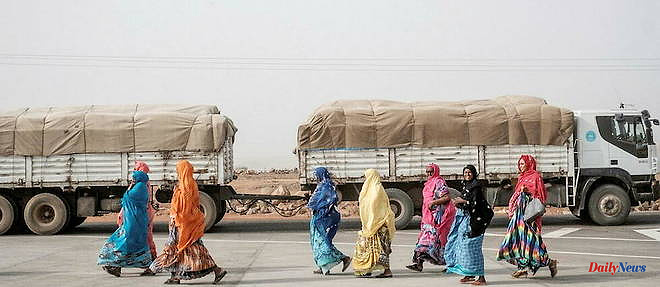The establishment of the African Continental Free Trade Area (AfCFTA) could allow a more than 50% increase in trade between the countries of the continent, but also reduce the impact of shocks due to global tensions, according to a recent International Monetary Fund (IMF) report. It would also, once fully operational, have a significant effect on trade between Africa and the rest of the world, with exports increasing by 29% and imports increasing by 7%. The consequence would be a "more than 10%" increase in median real GDP per capita, the report also points out.
The agreement creating the ZLECAf provides for the gradual elimination of almost all customs duties over five years for the most developed countries, and over ten years for the others. It has been signed by all African countries, and ratified by the vast majority of them, and in particular the main economies of the continent, such as South Africa, Algeria, Egypt, Kenya or Nigeria.
However, its implementation has been delayed: initially scheduled for July 1, 2020, it became a reality on January 1, 2021, due to the Covid-19 pandemic.
For the IMF, the AfCFTA is, however, the key to reducing the impact of global economic shocks. Here's why: "Greater trade openness would help countries adapt to climate change and enhance food security, including by improving the availability and affordability of food supplies," the IMF said in this paper titled "Integrating Trade in Africa – Unleashing the Continent's Potential in a Changing World”. “More diverse and broader trade would reduce the impact of disruptions in specific markets and products that could result from shifts in global trade patterns. »
Indeed, warn the five economists who authored this policy brief, Africa will be the biggest loser if global tensions rise. Above all, the region could suffer a permanent economic cost if geopolitical tensions lead to a separation of opposing trading blocs around the United States and China. The consequence would be direct for this area of the African continent, which would suffer a 4% drop in its gross domestic product after ten years of a possible rupture between Washington and Beijing.
The Fund's economists also point to risks if capital flows between trading blocs are disrupted due to geopolitical tensions. The region of sub-Saharan Africa, again, could in this case lose around 10 billion dollars in foreign direct investment (FDI) inflows and official development assistance, or around 0.5% of GDP per year. A decline in FDI would have enormous consequences on technology transfers, which are crucial for the region's development.
Another concern, still in the context of geopolitical tensions, is the accentuation of the "geoeconomic fragmentation" which would have serious impacts on the States of the continent which seek to restructure their debt, since this could weigh on the coordination between creditors. .
For the IMF, to strengthen its resilience to global shocks, Africa must urgently complete its trade integration. The African Free Trade Area could be the largest in the world, with a combined GDP of $3.4 trillion, according to the UN, when the treaty becomes fully operational. According to the World Bank, by 2035, the agreement would also create 18 million additional jobs and "could help lift up to 50 million people out of extreme poverty".
But differences remain on the continent. Discussions are stumbling over the timetable for reductions in customs duties, particularly for the least developed countries.
The Fund recalls that in order to achieve such an impact, African States will have to accompany the implementation of the agreement with a series of reforms. "If the reduction of tariff and non-tariff barriers is accompanied by a significant improvement in the business climate, the gains for countries would be significantly higher" with these reforms, insists the report. Without these reforms, the impact of the AfCFTA will be less. The simple reduction of barriers, tariff or not, will allow trade between African countries to increase by only 15%, with the key to a 1.25% increase in median real GDP per capita.
In order to seize all the opportunities, "it will require investing in physical and human capital, creating a robust macroeconomic framework […] and modernizing the social safety net to support the most vulnerable during the transition phase" , insists the report.












